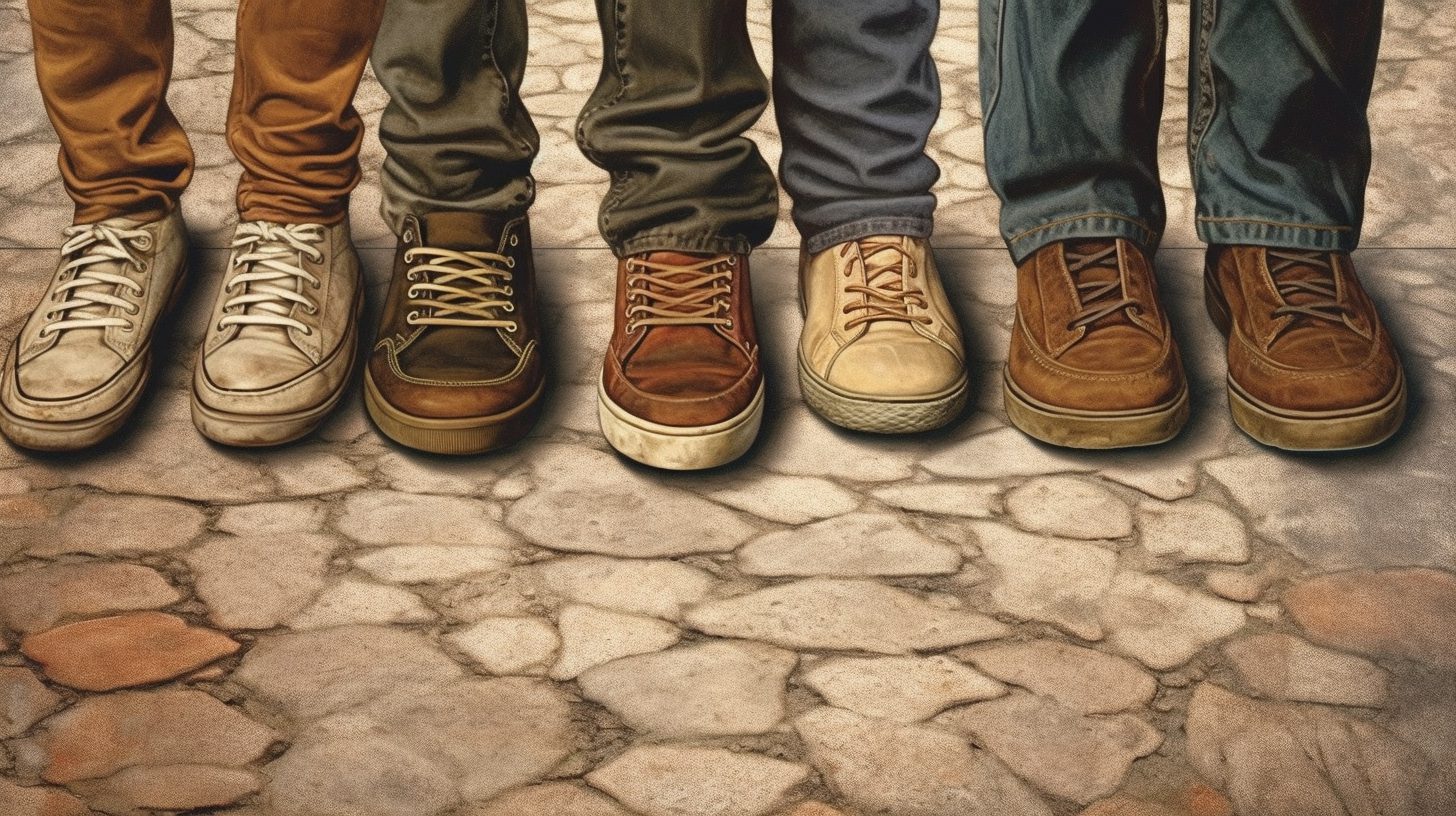The Personal Journey Begins with Respecting Others’ Paths
There’s a peculiar thing about life; it’s as varied as the people living it. But I do know that respecting others’ paths is a must.
Each person’s journey is painted with unique shades of experiences. Some colours are warm and joyful, while others are colder, representing the challenging times we all face. Some, like myself, become cold due to the nasty actions of others.
I’ve walked through both the warm and cold, and along the way, I’ve discovered something vital about respecting others’ paths. I have also found that opinions are like belly buttons; everyone has one, but some are just more pleasant to look at than others (I was going to compare opinions to ‘derrière’, however, I did not want to come across as vulgar).
On my own journey, during the icy periods of struggle, I found myself surrounded by loved ones. Their intentions are always as clear as the sky on a lovely summer’s day. They care, mean well, and want to help, to guide me. The advice from all these delightful selections of friends and family is as varied as the individuals themselves. Each nugget of wisdom is assembled from their personal life canvas of ups and down.
However, amid this well-meaning influx of guidance, I find myself conflicted. People’s advice, as well-intentioned as it is, often clashed with my instincts, adding stress and confusion to my already complex mind.

These voices gave their perspectives, solutions, and ways of dealing with my unique situation. Some, waiting in the background with hindsight, are eager to say, ‘I told you so’. Yet, I am filled to the brim, and all I can do is hit that emergency button and say, ‘Why can’t I make my mistakes and learn from them?’
Embracing the Right to Make Our Own Mistakes
Through this frenzy of advice and opinions, it becomes apparent that I would rather be the maker of my own downfall. But, at least it means I have tried with the best intentions and failed, should this be the outcome.
Making mistakes is not a deviation from the path but a crucial part of the journey. Each misstep, each stumble, and each misguided decision is not a failure but a lesson. They form the points on my life’s map that, in retrospect, shape me. Mahatma Gandhi once said:
Freedom is not worth having if it does not include the freedom to make mistakes
It takes time to reflect and think against continuous on-the-tap advice pouring in. It is like trying to hear your voice in a crowded room or in your mind. The conflicting opinions, although painted with the best of intentions, do not help your judgment. On the contrary, this leads only to stress and confusion.
In these moments of conflict, I realise the power of respecting others’ paths and their right to make their own decisions. Allowing people to take responsibility for their lives and decisions rather than trying to control or micromanage them.

The Continuum of Friends and Family vs Therapists
My realisation of the need for respect brings another into focus. I have in the past used therapists; I am often left questioning what they actually did for the amount of money I paid them. However, as my level of maturity improved in my mid-life, so too did my ability to reason. Then, I understood therapists are not there to tell you what to do but instead equip you with tools for the job.
This highlights the continuum between the approach of friends and family and therapists. The former often instruct you on how to react or behave, and their solutions are based on their experiences, their perspectives. Their intentions are pure, but their methods often leave me feeling like a passenger in my own life.
On the other end of the spectrum, therapists present a different approach. Instead of instructing, they listen. They don’t project their experiences onto you but provided tools to navigate your path.
If I can offer a metaphor, their role is not to drive but to provide a map and landmarks to guide me. They respect your journey, your right to make decisions, and, most importantly, your freedom to make mistakes.
This respect isn’t just about letting you do things your way; it is an empowering force. It reinforces the notion that making and learning from mistakes is okay. It is a validation of your journey, experiences, and process of self-discovery.
The therapists don’t just respect your path, they acknowledge it, and in doing so, they give you the freedom to explore it on your terms.
The Power of Acceptance and Non-Judgement
In my life journey, I learn each day. Still, during my current unplanned expedition, I have discovered the true essence of respecting others’ paths lies in acceptance and non-judgement. Brené Brown, the well-known American research professor, public speaker, and author who has written several books on topics related to vulnerability, courage, shame, and empathy, once said:
When we can let go of what other people think and own our story, we gain access to our worthiness—the feeling that we are enough just as we are and that we are worthy of love and belonging
As each of us has a unique fingerprint, so are our experiences and perspectives. We may not always understand or agree with someone’s choices, but we can respect them and accept them without judgment. This is a challenging thing to do; it goes against our instinct to ‘fix’ things, to offer solutions.
Yet, extending this acceptance creates a safe space where people feel valued and free to be themselves, even if that involves making mistakes. It may prevent them from shutting off from society as I have done, to protect myself and hear my voice.
I have realised that this freedom is not about unrestricted action but validation. It is about acknowledging that my feelings, choices, and mistakes are my own and are just as valid as anyone else’s. They are accurate, whether right or wrong. I alone have travelled my life path for the past 45 years!

Respecting Others’ Paths: A Step Towards Empathy
Respecting others’ paths not only empowers us but also fosters empathy. It allows us to see beyond our perspectives and appreciate human experiences’ diversity. It teaches us that there’s no ‘one-size-fits-all’ solution in life, and that’s perfectly okay.
Empathy is more than just understanding someone else’s feelings; it’s about respecting their journey, choices, and right to learn and grow at their own pace. It’s about acknowledging that their path may not be the same as ours, but it is just as valid, influential, and meaningful.
We all have the right to carve our paths, make our own mistakes, and learn from them. It’s not about agreeing with everyone’s choices but about allowing the space for each person to be themselves.
I could not let this opportunity pass without demonstrating my allegiance to science and engineering. Albert Einstein is often quoted as saying:
Anyone who has never made a mistake has never tried anything new.
Want to be on the therapist’s end of the continuum? If so, when it comes to the truth, stand fast! But when it comes to matters of personal taste and tradition. It’s best to embrace diversity and allow people to make choices without judgment.


